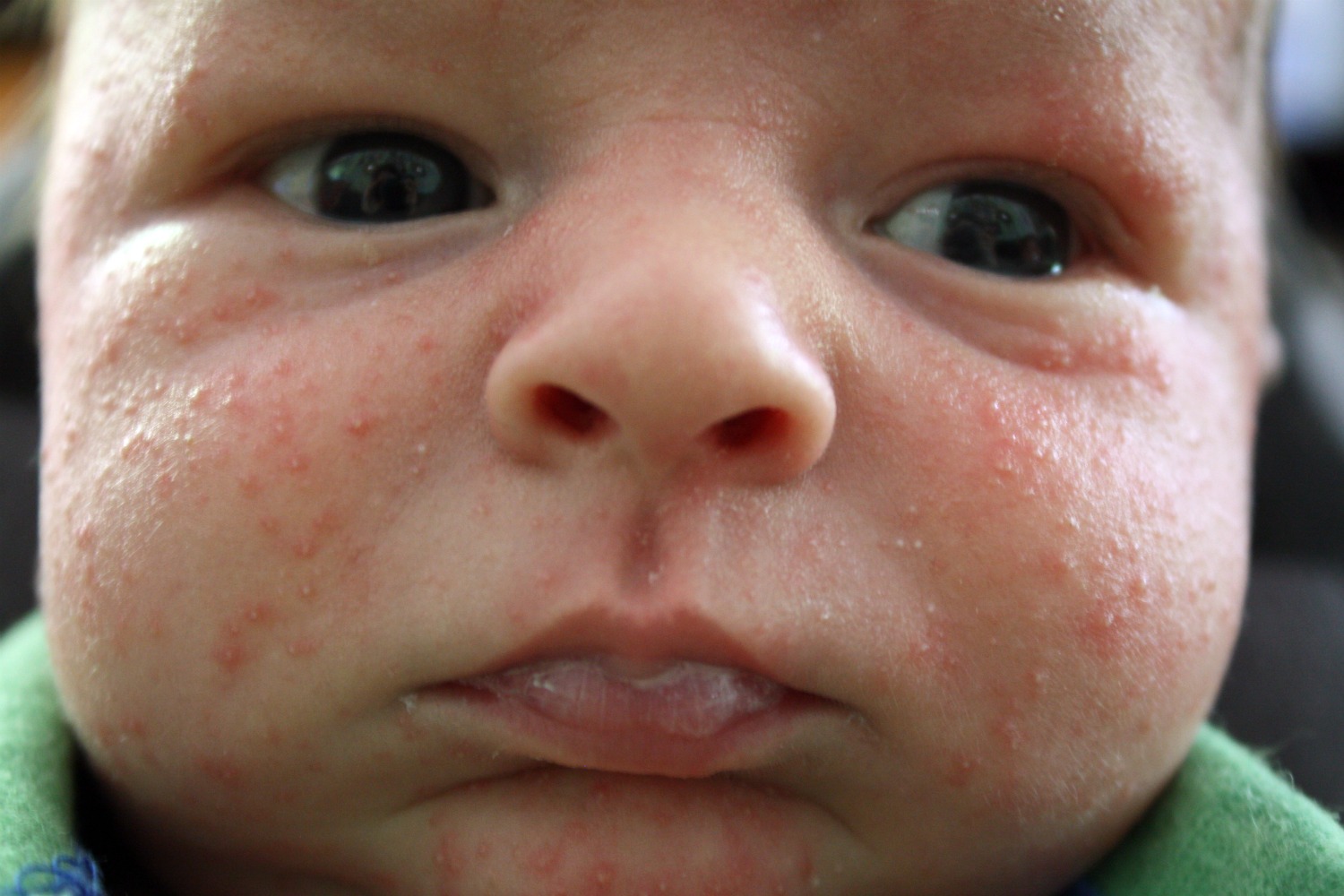
Believe me, infant acne will go away — though it may take a while. No one knows for sure the cause of infant acne, which usually begins at 2 to 3 weeks and can often last until a baby is 4 to 6 months old, but it is most likely the result of your hormones still circulating in your baby's system from pregnancy.
Those tiny blemishes can also be attributed to her immature sweat glands and easily-clogged pores. Before we get to the top ten baby acne treatment tips, let’s touch on three important questions: Your newborn is picture-perfect, of course—but as you memorize every square inch of her, you may notice some blemishes on her otherwise brand-new skin.
What gives? It’s not as if she’s been chowing down on fast food. They may be red and raised, they may be red and raised, they may be tiny and white or they may resemble the acne flare-ups you experienced in high school. But while these bumps may be disconcerting, they’re actually not surprising, when you think about it: Just like a teenager, a baby experiences profound hormonal shifts as she adjusts to the world outside the womb, and that can manifest as baby acne.
Here’s how to treat it when it pops up. Baby acne is a common condition that affects many babies within several weeks to several months of age. Most pediatricians agree that the best treatment for baby acne have not been identified even though it’s a common skin condition. Baby acne is defined as tiny red bumps or pimples that develop on your baby’s face, as milia is not related to baby acne.
Believe me, infant acne will go away — though it may take a while. No one knows for sure the cause of infant acne, which usually begins at 2 to 3 weeks and can often last until a baby is 4 to 6 months old, but it is most likely the result of your hormones still circulating in your baby's system from pregnancy.
Those tiny blemishes can also be attributed to her immature sweat glands and easily-clogged pores. Before we get to the top ten baby acne is nothing at all, since the condition is natural and will clear up quickly enough as long as the baby's face is gently washed. Under severe conditions, though,